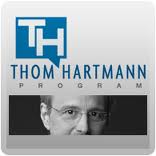 As the nation continues to react to the events in Ferguson, Missouri, many people are asking themselves, “Where do we go from here?”
As the nation continues to react to the events in Ferguson, Missouri, many people are asking themselves, “Where do we go from here?”
In a piece published over the weekend in The New York Times, Nicholas Kristof says that, in the wake of Ferguson and the increase in racial tensions, America needs a Truth and Reconciliation Commission. Kristof writes that, “We feud about the fires in Ferguson, Mo., and we can agree only that racial divisions remain raw. So let’s borrow a page from South Africa and impanel a Truth and Reconciliation Commission to examine race in America.”
While Kristof may have a point, there’s another - and, I believe, more urgent and pressing question that we should all be asking in the wake of Ferguson: Who will police the police? The Constitution and our Founders provide us with some insight on that very question.
When our Founders sat down to write the Constitution, they had a big debate over whether America should have a standing army. They had that debate because armies had a nasty habit of overthrowing elected governments, all the way back to the time of the Greeks. Our founders didn’t want a military under the control of a military official, because they knew how badly that could turn out.
As James Madison told the Philadelphia Constitutional Convention in 1787, “A standing military force… will not long be safe companions to liberty. The means of defense against foreign danger have been always the instruments of tyranny at home. Among the Romans it was a standing maxim to excite [start] a war, whenever a revolt was apprehended [whenever the population was calling for political change]. Throughout all Europe, the armies kept up under the pretext of defending, have enslaved the people.”
So, our founders wrote in the Constitution that the chief executive of the military and armed forces had to be an elected civilian, the president, who would be replaced every so often. (They also time-limited military appropriations to a maximum of 2 years to force Congress every session to re-evaluate the military.)
That same principle - that the head of the police should be an elected civilian, not a cop or a prosecutor - is needed for oversight of police in America. All across America, we need police oversight boards that are independent of police departments, complete with subpoena and indictment powers, and that can impartially rule on police actions and matters. But the changes can’t stop there.
We need to also bring back good old-fashioned community policing. Back in 1994, the Clinton administration created something called the COPS program. COPS, or the Community Oriented Policing Services program, provided resources for local police forces around the country, and put 100,000 police officers on America’s streets - literally walking patrol. The idea was to get officers out into the community where they could form relationships with everyday people and "serve and protect" rather than occupy and control communities as if they were simply armed soldiers.
Madison, Wisconsin Police Officer Katie Adler is a great example of the kind of police officer the COPS program was meant to create. She is a neighborhood officer in the crime-ridden North Side area of Madison. Unlike regular patrol cops in Madison, neighborhood officers like Officer Katie work in at-risk communities to make a difference and build relationships with citizens - and it even prevents future crime.
Officer Katie is beloved in the communities that she patrols, so much so that kids follow her wherever she goes. And, she’s even inspiring children in the communities she patrols to become police officers when they grow up.
Unfortunately, police officers like Officer Katie are few and far between. That’s largely because ever since the Bush administration stepped foot in Washington, funding for the COPS program has been slashed year after year. And, over the past few years, things have gotten even worse.
In 2010, $792 million was allotted in the form of federal grants under the COPS program for local police forces across the country; by 2012, that number shrank to just $199 million. If the events in Ferguson have taught us anything, it’s that community policing efforts in America need to be expanded, not slashed.
Programs like COPS help law enforcement agencies to do more than just catch criminals. More importantly, they encourage street officers to work with communities to create a culture of trust that breaks down the barrier between cops and civilians. And, by establishing police oversight boards, we can make sure that police officers and police departments are held accountable for their actions by independent and impartial bodies.
It’s time to bring community policing back to America, and add an impartial system for accountability when a cop goes rogue.
Who Will Police The Police?
By Thom Hartmann A...



